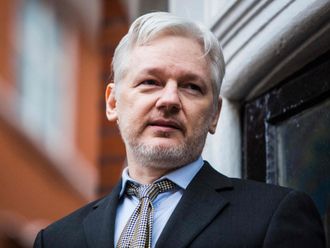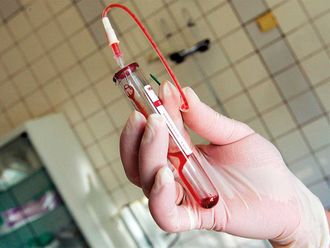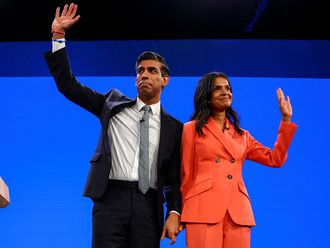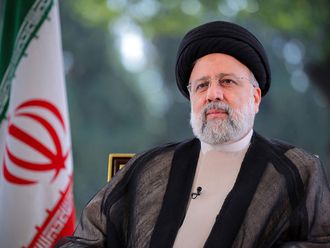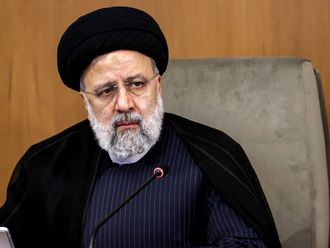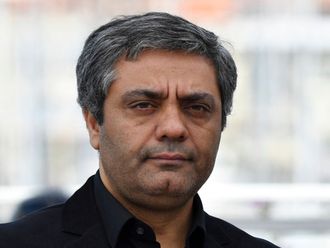London: The UK Home Office’s head of counter-terrorism has revived his fight to secure the return of the “snooper’s charter” legislation, insisting that the government’s spy listening centre GCHQ has never collected the communications data required by Britain’s police and security services under the ditched bill.
Charles Farr, the head of the office of security and counter-terrorism, told MPs on Tuesday he had learnt new things about particular GCHQ operations from the Guardian’s disclosures but not about its capabilities.
He said he had seen material about the US National Security Agency that had been completely new to him but it was information he had not needed to know.
He told the Commons home affairs select committee there was “no doubt” disclosures about GCHQ’s capabilities based on Edward Snowden’s leaks had made them less effective but refused to provide any evidence, arguing that to do so would make a bad situation worse.
In his appearance during the committee’s ongoing inquiry into counter-terrorism, Farr also revealed that terror suspect Mohammad Ahmad Mohammad had been remanded in custody three times and then released on bail before he absconded by disguising himself in a burka.
Farr also confirmed that proposals to ban terror suspects from praying at all 1,600 mosques in Britain and to take away their UK passports even if it left them stateless were being looked at in detail.
Farr told the MPs that the home secretary, Theresa May, shared his belief that the communications data bill, which would require phone and Internet companies to track and store for 12 months the details of everyone’s email, text, and other Internet use, was essential to enable the police and security services to do their job.
The bill was blocked in April by Nick Clegg who said the “snooper’s charter” legislation was not going to happen with the Liberal Democrats in government. Liberty’s director, Shami Chakrabarti, claimed the Snowden material had shown “we got taken for mugs” because the security services were “doing this stuff anyway”.
But Farr insisted this was not the case and said GCHQ’s capabilities were not a substitute for the powers of the communications data bill. “That is not the case. It’s incorrect. GCHQ has never collected the data required by law enforcement and it never would, it’s never been considered,” he said.
When he was pressed on this by the Lib Dem home affairs spokesman, Julian Huppert, Farr replied: “GCHQ has never and will never collect the communications data required by law enforcement which we were seeking to provide for in the communications data legislation.
“Of course they do collect communications and communications data. My point was specifically about the UK and the data we were seeking to obtain through legislation. GCHQ cannot provide that data itself.”
The Snowden documents detailed how GCHQ’s Tempora programme scoops up and stores for up to 30 days the personal communications data flowing out of Britain to the US computer servers of companies such Facebook, Google and Twitter. The “snooper’s charter” would require phone and Internet companies to collect and store all UK communications data for 12 months for access by the police and security services.
When Farr was pressed by Huppert on whether GCHQ collected the communications data when it was sent overseas he declined to answer.
Huppert said after the hearing: “It is no surprise that Charles Farr is committed to the communications data bill but it will not happen this parliament because we in the Liberal Democrats have said ‘no’.”
Earlier in the hearing, the government’s official counter-terrorism watchdog, David Anderson QC, told the MPs he believed the debate in Britain over the NSA/GCHQ disclosures had been muted compared with many other countries because the public were proud of their security services thanks to Bletchley Park and 007.
But he warned the MPs about adopting a “zero risk mentality” in the wake of the latest disappearance of a suspect under the terrorist prevention and investigation measures, known as TPIMs, saying the only foolproof method to keep everybody safe was to lock up all suspects for ever. Britain was not that kind of country, he said.
He also defended the two-year time limit on TPIMs with most of the eight remaining orders due to lapse in the new year. Anderson said the time limit “concentrates minds” on finding a way of prosecuting or releasing the suspects. TPIMs can only be renewed if fresh evidence is presented in each case.
Anderson declined to discuss the impact of the Guardian’s disclosures saying he “wasn’t going to get into that” and when the committee chairman, Keith Vaz, went on to ask him if he was a Guardian reader, his fellow Labour MP, David Winnick, interrupted: “That’s not yet a criminal offence. Even under this Tory government.”


